Armenia was also among the first post-Soviet countries to readily embrace capitalism, which served to improve somewhat the standard of living, but brought with it a score of other problems. However, regardless of (presently improving) economic situation, the point of this article is to remind the reader about the incredible natural and cultural wonders of this country.
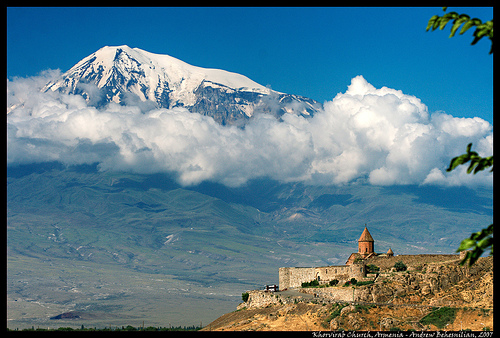
(Khorvirap Monastery with Mount Ararat, photo by Andrew Behesnilian)
Feel the deep poetry of stones:
(Armenia’s mystical old churches & monasteries)
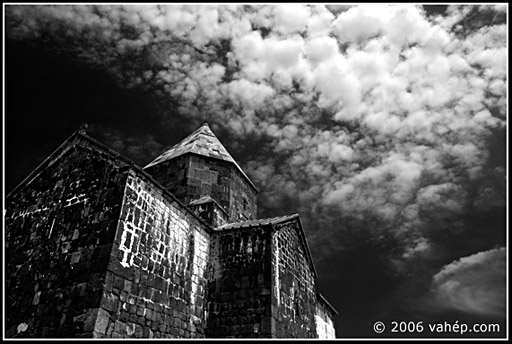
Garni Temple – This temple was constructed over 2,000 years ago and was likely paid for by Emperor
Nero of Rome. It is probably the most eastern Greek temple in the world – Greek Gods were worshipped there until Armenia’s adoption of Christianity (Armenia was the first country to officially adopt Christianity, in 301 A.D.)
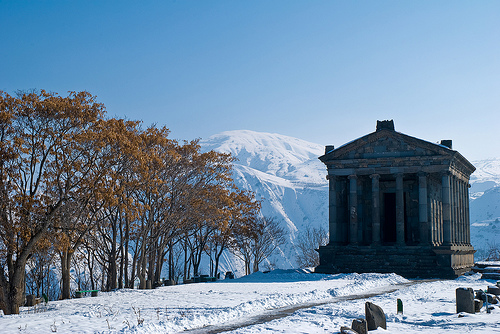
(image credit: Anton)
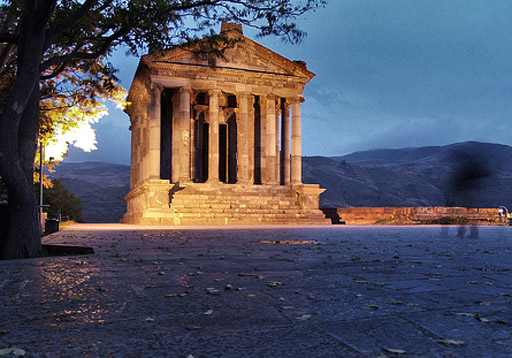
(image credit: Alessandro)
Peaceful (and somewhat dreamy) monastery on Lake Sevan (also called Sea of Guegham).
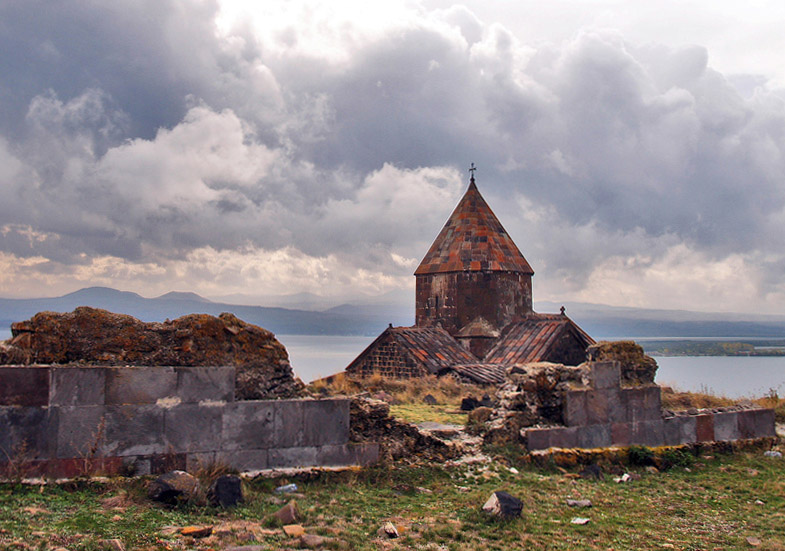
(image credit: Alessandro)
Spring at Echmiadzin Cathedral.(Built in 303 A.D.) .
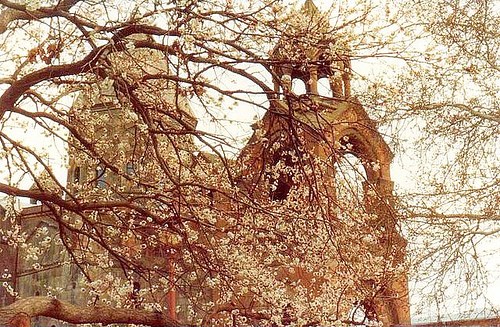
(image credit: Isabelle)
Now we’re entering the “epic fantasy” territory. Or rather, historic reality infused with deep spirituality – so evident in these places, visited by hordes of busy tourists – and waiting for a period of silence and a revered pause to speak to our inner selves. The interior of Geghart (or Geghard) Monastery (12th Century) -
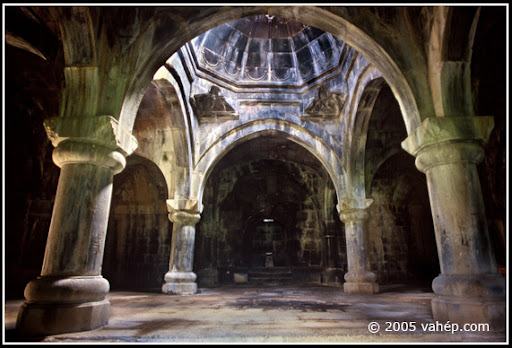
Noravanq Monastery is located in the picturesque rocky mountainous region of Vayotz Dzor.
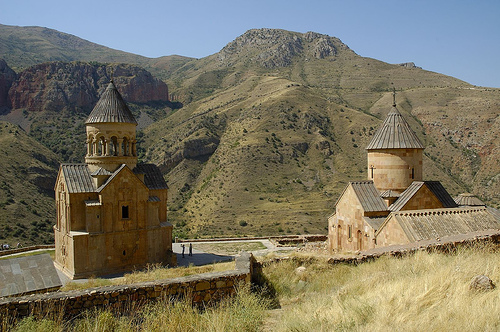
This place reminds me most of some “Lord of the Rings” locations.
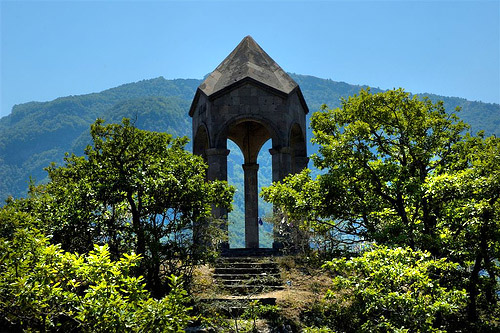
Amroc: some nameless old stronghold .
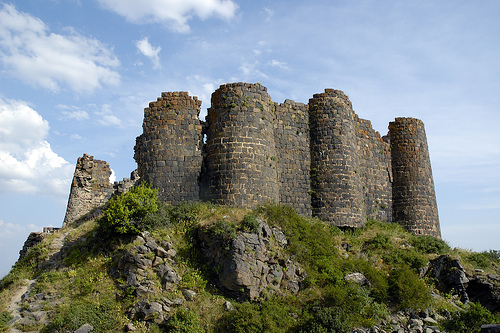
(images credit: Albert)
Amberd Fortress (11 – 13th Century) sits on the slopes of Mt. Aragats:
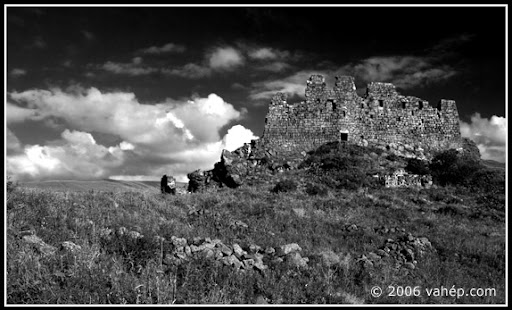
Boromir and Aragorn would’ve loved it here. Areni Church, in the Vayots Dzor region of Armenia, is shadowed by a crag rising to its south:
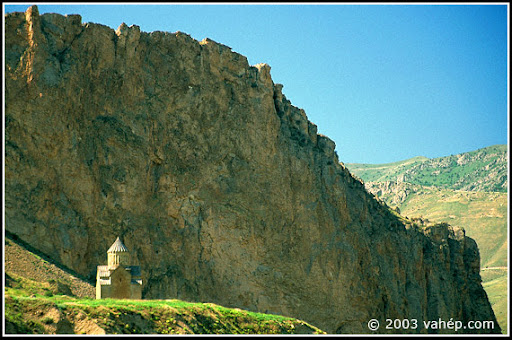
Haghbat Monastery (10th – 13th Century) interior:
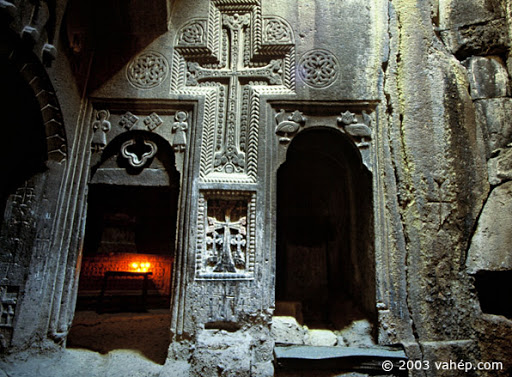
Makenyats Monastery sits on the slopes of the Gegharkunik range:
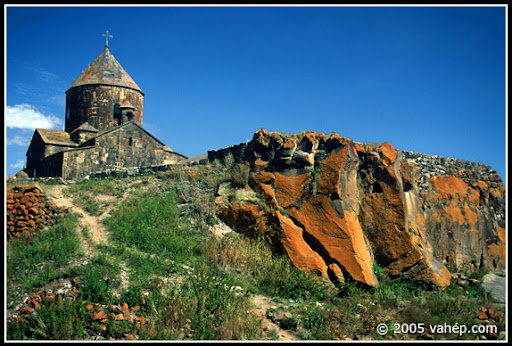
Tatev Monastery, in the Syunik region of Armenia:
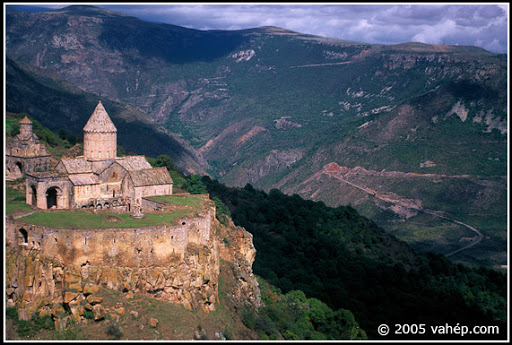
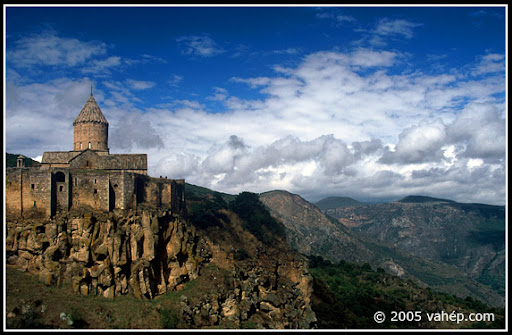
Haghartzin Monastery, in the Tavush region of Armenia, is surrounded by dense forests and almost completely isolated. (the 13th century) -
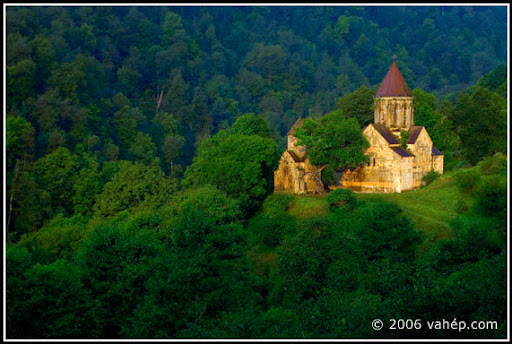
Going even deeper into the mists of time:
Armenian Stonehedge – Believed to be somehow related to the Stonehenge in England, it also predates it by about 3,500 years! Karahundj, also known as Zorats Karer, is a 2nd Millenium BC rock fromation on a plain outside Sisian, in the Syunik Region:
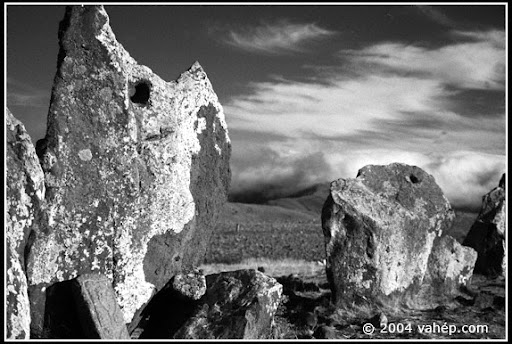
This kind of nature needs an IMAX
The location of ancient city of Ani – former capital of Armenia about a thousand years ago. “It has suffered a lot from invasions, neglect and earthquakes. It is in far Eastern Turkey, near the town of Kars, right on the border with modern Armenia”:
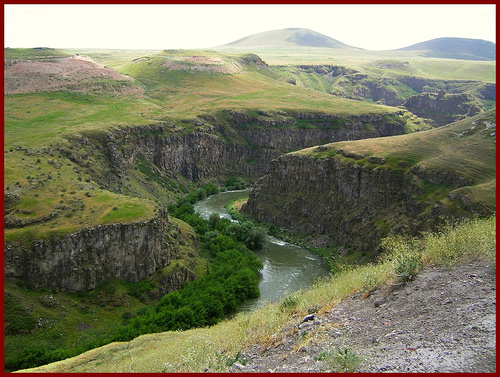
(image credit: Norman Grant)
Garni Village: Armenia enjoys all four seasons, but its winters are especially beautiful -
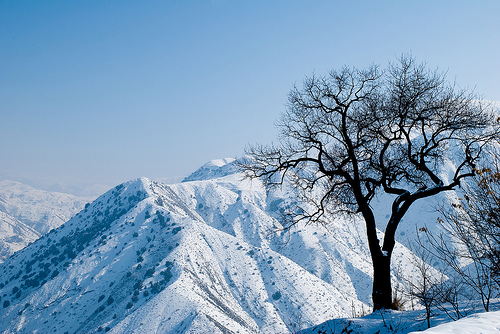
(image credit: Anton)
Lake Sevan is one of the largest high-altitude lakes in the world (covering 5% of Armenia), sitting some 2 kilometers above the sea level.
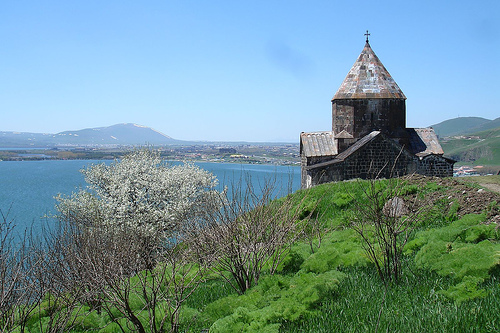
(image credit: Ara G.)
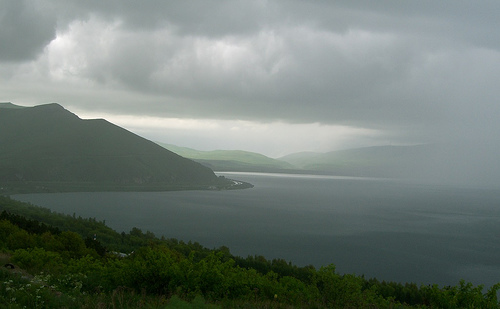
(image credit: titanium rodent)
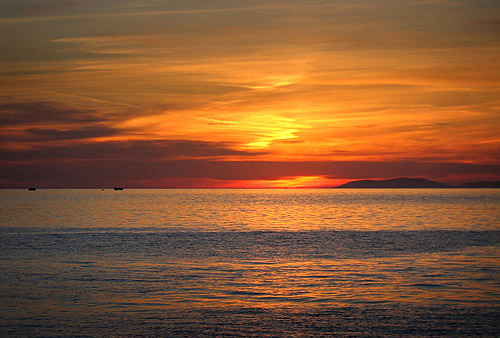
(image credit: Alexanyan)
Springs on the old road to Jermuk:
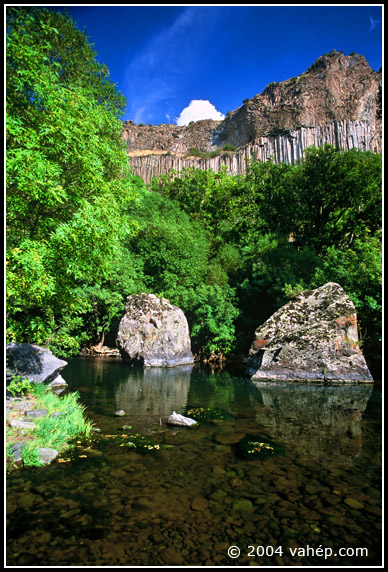
Crystallized basalt cliffs in the Garni Gorge:
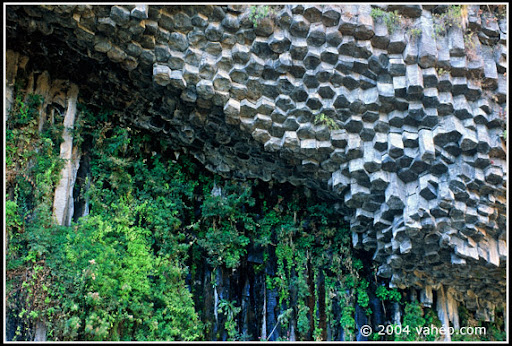
Shaki Waterfalls (Shaki was the prettiest girl of the region who chose to jump off from the cliffs to near death, rather than give herself to the Mongol invader Timur Lenk)
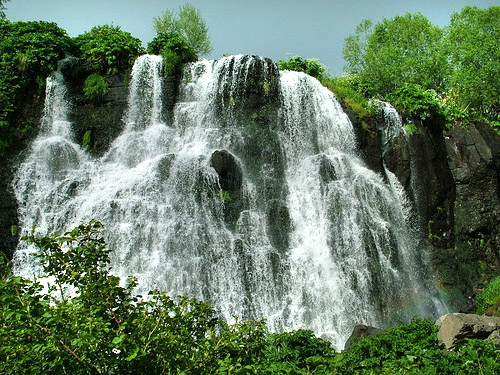
(image credit: pragaapple)
Zontik Waterfall:
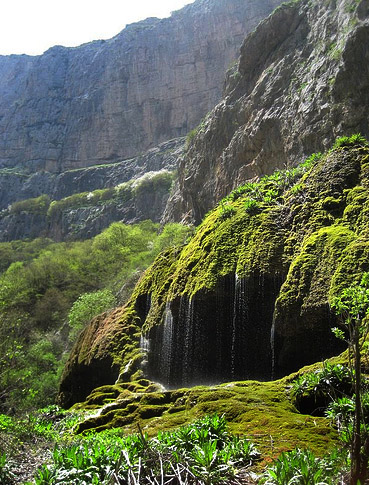
(image credit: Raffi Kojian)
Armenian urban life picks up speed
Yerevan’s Freedom Square buildings are made of solid slabs of granite and tufa, the latter responsible for the yellowy-red color found in structures throughout Armenia:
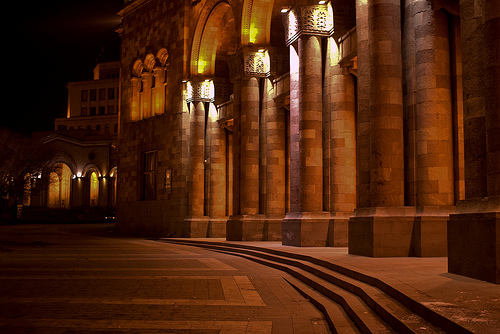
(image credit: Anton)
“The Singing Fountains” of the Republic Square (watch them in action in this video) -
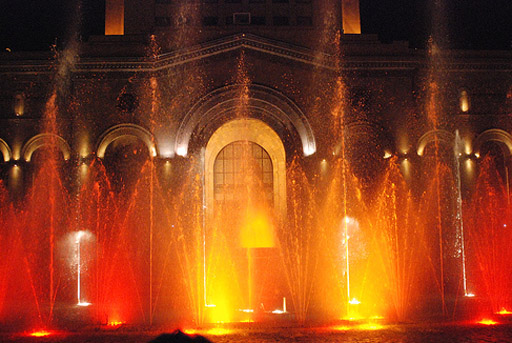
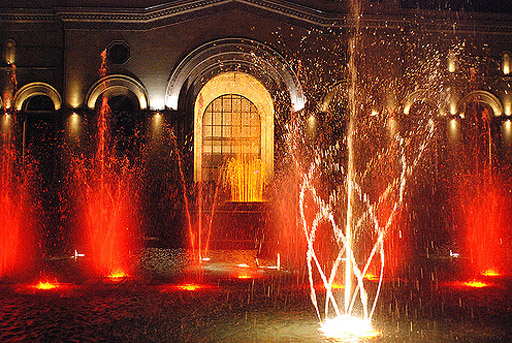
(images credit: Vaghinak Petrosyan)
Designed by Prof. Abram Abramyan, they combine music, water and colour into a unique, unified whole – Yerevan got one of the first such installations in the world, back in the 60s.
Another photo of Yerevan:
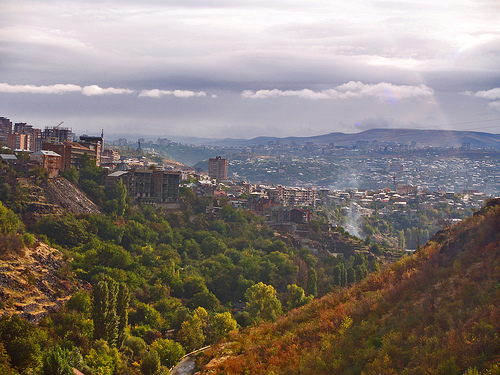
(image credit: Alessandro)
Yerevan at Night: Armenia’s capital city has a very vibrant night life, with people filling its many pedestrian-friendly streets until the early hour of morning. Mount Ararat, the possible Biblical landing of Noah’s Ark, stands guard (the Soviet-era architecture, admittedly, is unbelievably ugly)
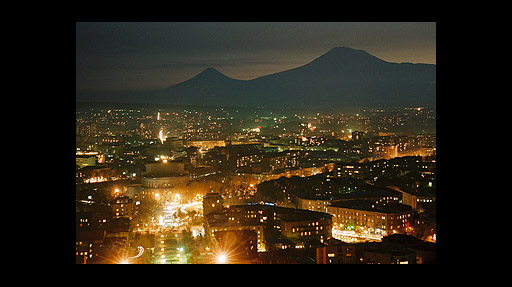
(image credit: randbild)
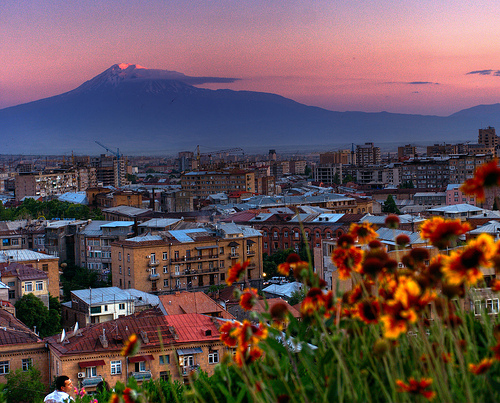
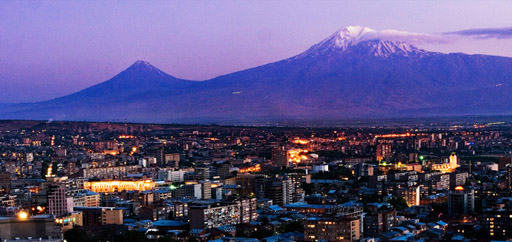
(images credit: Andrew Behesnilian)
Kids at the wedding:

(image credit: Arsineh Khachikian)
Statue of David of Sassoun, who is said to have driven Arabic invaders out of Armenia in ancient times -
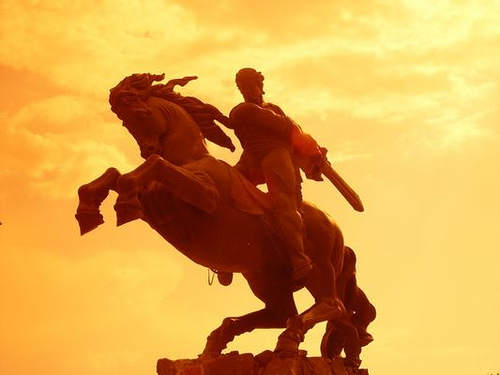
(image credit: Alexanyan)
Immense crystal chandelier, one of dozens, that hangs inside the Opera House:
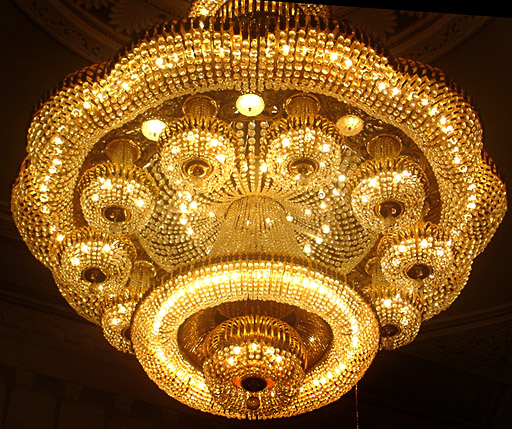
(image credit: Roupen Nahabedian)
Modern Office Building – and a Maybach car – in Yerevan (capitalism did indeed bring a higher standard of living for most and a luxurious lifestyle for the lucky few)
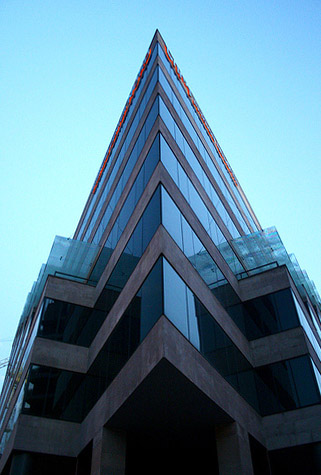
(image credit: Khashayar Zand)

From modern money to ancient carved mysteries
No matter where you are in Armenia, you are never too far away from Khachkars – the ancient Cross Stones, which pepper countryside and can be found in many cathedrals.
There are approx. 40,000 of them, each khachkar an intricate and unique engraving (amazingly, some feature Celtic knot pattern) with a mighty legend or a prayer commemorated on it… Here is one near Odzun monastery:
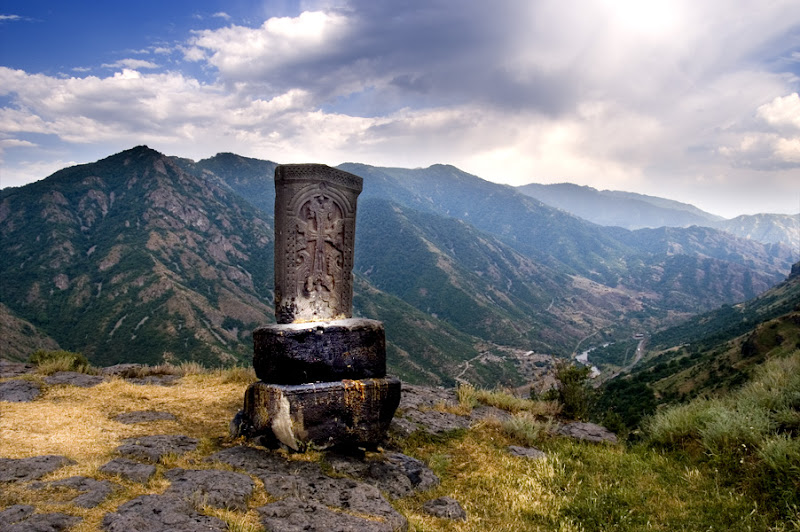
(image credit: Hovik Melikyan)
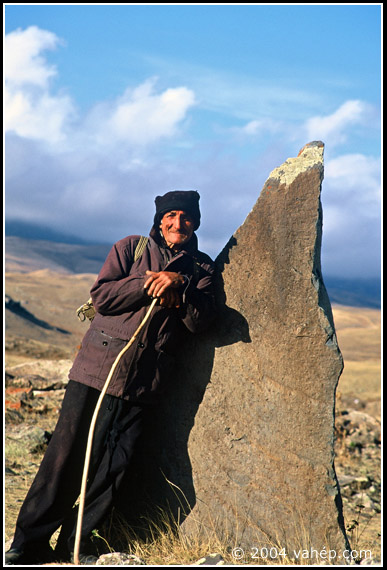

0 comments:
Post a Comment